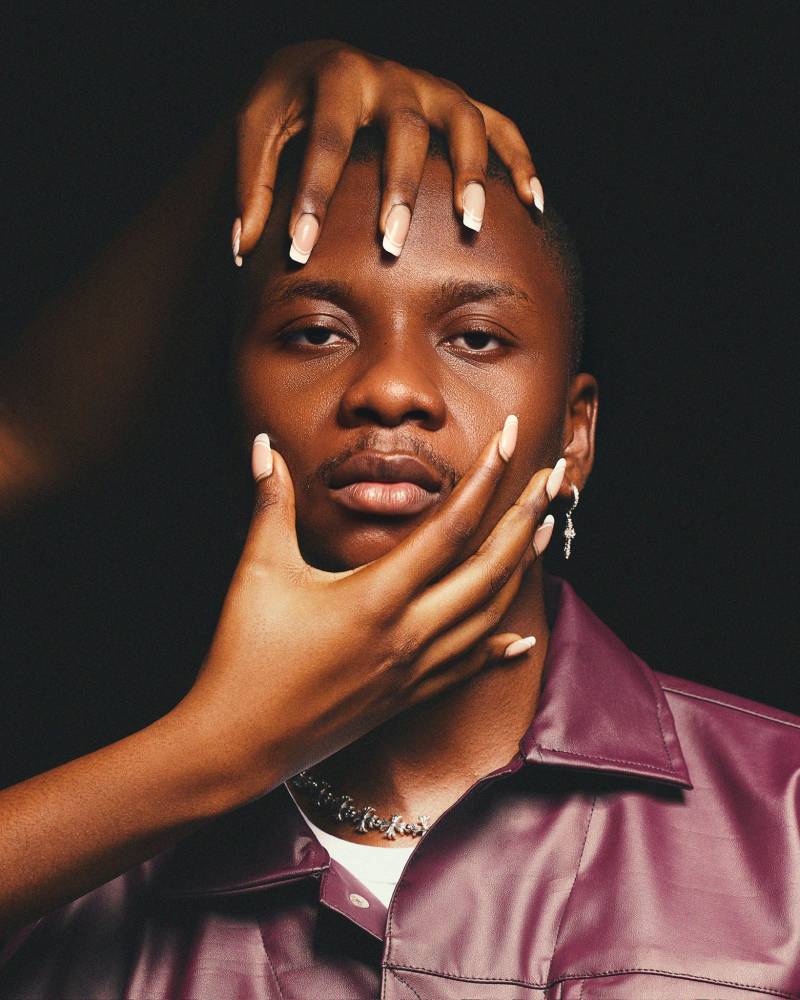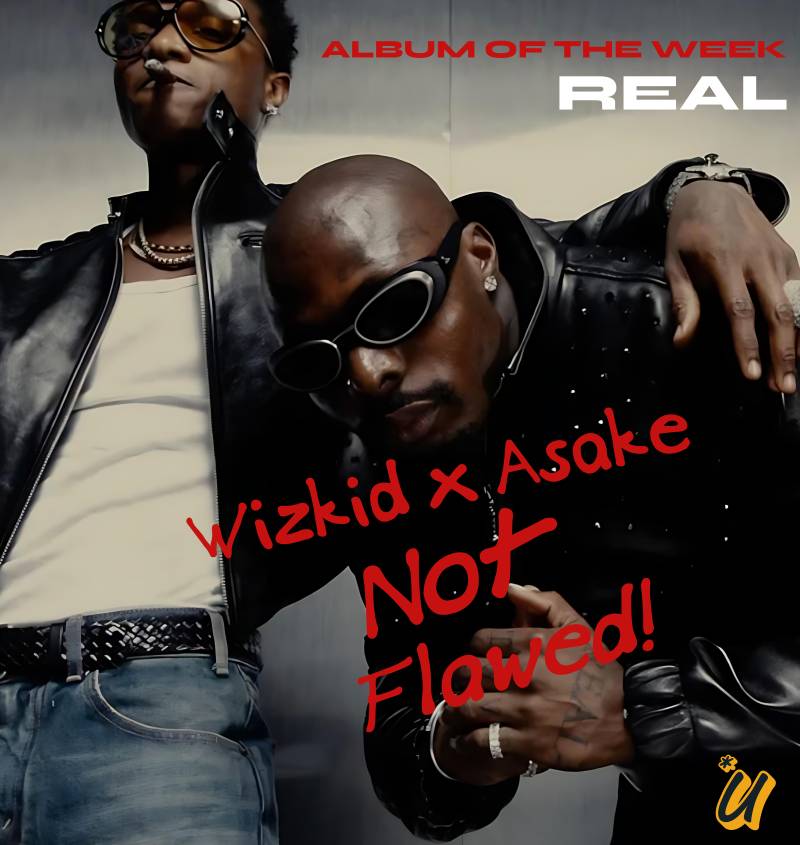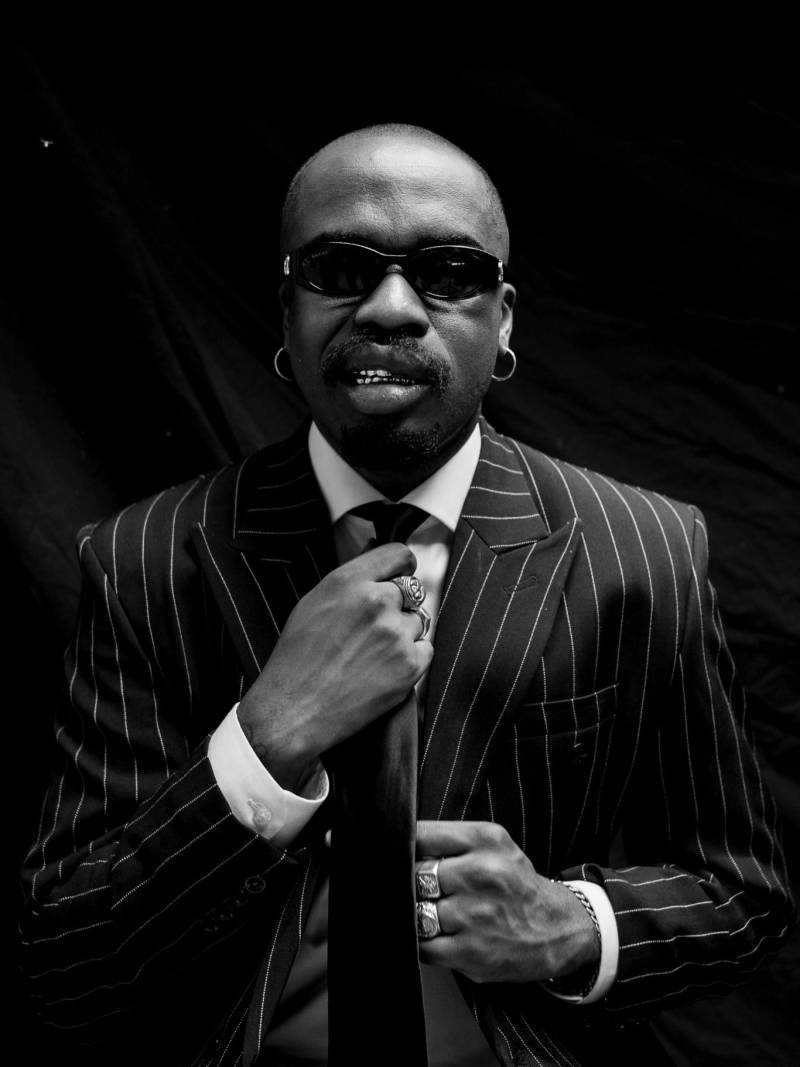The line stretched around the block, to Houston Street on Manhattan’s West Side, south down Wooster, wrapping around Prince and then back up Greene Street, the tail end bumping up against the entrance. The kids all looked the part: KENZO, BAPE, Human Made and Supreme, logos as prominent and fresh as their Air Force 1s, dutifully waiting for the chance to pick from a selection of exclusive $130 T-shirts, $450 sweatshirts and $2,000 varsity jackets inside.
For a streetwear fan on a Saturday in New York, there was no better place to be than here, outside a SoHo pop-up shop celebrating the latest collaboration from Nigo. The Japanese cultural legend — who founded BAPE in 1993 and ushered in an aesthetic that made him one of his generation’s most iconic fashion designers and tastemakers — was putting out his first album in 17 years, I Know Nigo!, and, as with many of his projects, this one was multifaceted, with its own limited-edition merchandise and clothing lines, drops so rare that to be anywhere else was to simply not care about the culture.
Pharrell Williams knows Nigo, and has for more than 20 years. The two met in Nigo’s Tokyo studio — a place with multiple floors housing a showroom, a hair and makeup salon, and studios for photography and recording — when Williams was in town on tour. “I was like, ‘Who is this dude?’ ” Williams recalls. “We’ve been friends ever since.” The two launched the Billionaire Boys Club clothing line together in 2005; Williams is the executive producer of Nigo’s new album.
Pusha T knows Nigo. It was 2003 when Nigo — a huge fan of Clipse, the Virginia coke-rap duo of Pusha and his brother Malice (now known as No Malice) whose work was largely produced by The Neptunes — flew them all out to Tokyo to celebrate BAPE’s 10th anniversary. “First time I’ve ever seen branding like that,” says Pusha of that trip into Nigo’s world. “It was everything — his Rolls-Royces had his camo print; his cafés, the tables were all his prints. I didn’t know where I was — I was in Wonka land.” Pusha is featured on two tracks on I Know Nigo!, even getting back together with his brother for a mini-Clipse reunion on the album’s standout track, “Punch Bowl,” produced by Williams.
Steven Victor doesn’t just know Nigo — he’s a Nigo superfan, having first encountered the designer’s work “as a New York City kid at the BAPE store.” The two met here and there over the past decade, while Victor was working in his various capacities — as Pusha’s manager; as first an A&R executive, then the COO of Kanye West’s G.O.O.D. Music; after he left G.O.O.D., while working at Universal Music Group with artists like Pop Smoke. But they didn’t really think about working together until 2017, when Victor asked if Nigo would design the logo for his new partnership with UMG, Victor Victor Worldwide.
It was Victor, 41, who sparked the creative fire that turned into I Know Nigo!, which debuted at No. 13 on the Billboard 200 after its March 25 release on Victor Victor/Republic and has racked up over 70 million on-demand streams since, according to Luminate. “I had a half-formed idea about doing a new record, and I asked him for advice,” Nigo says. (He is a DJ with the Japanese hip-hop group the Teriyaki Boyz, but served as more of a curator on this project.) “[Victor and I are] able to share and exchange ideas, and that’s what allowed us to work on this project.”
What started as a two-song mini-release with Clipse and Williams evolved, thanks to Victor, into a full-length album, with heavy hitters — and Nigo’s friends — A$AP Rocky, Tyler, The Creator, Gunna, Kid Cudi, A$AP Ferg and Lil Uzi Vert lending verses. There is also the exclusive merch from Nigo’s Human Made clothing line (he sold BAPE in 2011) and a collaboration with Victor Victor, with branded dog collar sets ($50), baseball bats ($200), skate decks ($100) and an ashtray ($75) available at the pop-up, making Victor’s name just as ubiquitous as Nigo’s for those who managed to make it inside. Victor and Nigo are planning a restaurant in New York, modeled after Nigo’s famed Curry Up spot in Tokyo, while Victor has been in touch with the producers behind Netflix’s Michael Jordan docuseries, The Last Dance, about developing a film on Nigo’s career.
What started as a two-song mini-release with Clipse and Williams evolved, thanks to Victor, into a full-length album, with heavy hitters — and Nigo’s friends — A$AP Rocky, Tyler, The Creator, Gunna, Kid Cudi, A$AP Ferg and Lil Uzi Vert lending verses. There is also the exclusive merch from Nigo’s Human Made clothing line (he sold BAPE in 2011) and a collaboration with Victor Victor, with branded dog collar sets ($50), baseball bats ($200), skate decks ($100) and an ashtray ($75) available at the pop-up, making Victor’s name just as ubiquitous as Nigo’s for those who managed to make it inside. Victor and Nigo are planning a restaurant in New York, modeled after Nigo’s famed Curry Up spot in Tokyo, while Victor has been in touch with the producers behind Netflix’s Michael Jordan docuseries, The Last Dance, about developing a film on Nigo’s career.
“You know what a GT2 is? A GT2 RS Porsche — it’s a race car,” Victor says, animatedly but distractedly. “I have one, but people don’t really drive them on the street. They drive them on the racetrack.”
It’s two days later, and the line for the pop-up is considerably smaller, with about a dozen people milling around outside — a result of both weekday blues and an early-spring cold front. (The pop-up will ultimately close a few days early — because its inventory sells out.) But in the greenroom downstairs, Victor, omnipresent blue L.A. Dodgers hat on his head, can barely contain his excitement as he tears open a package: a custom Victor Victor racing suit, decked out in Nigo’s designs, with racing gloves to match.
The one-of-a-kind fit is for Victor’s upcoming training for the Ferrari Challenge, a series of races for the brand in which he’ll compete starting next year. “I’ve always been obsessed with cars — even when I couldn’t afford them,” he says. “But I’ve started taking it way more seriously recently.”
A lot of things in Victor’s life are more serious now that he has risen through the ranks of the music business, ascending over the past two decades from publicist to manager to label executive to CEO. (“I think he has always pretty much been the same person,” says Williams of Victor’s rise. “The only thing that has really changed is the keys — the keys to opportunities and the keys to his cars.”) In 2004, Victor came aboard as a publicist during Clipse’s highly successful run of underground mixtapes as the Re-Up Gang, which Victor pushed to journalists and tastemakers, helping build Clipse up on the internet at a time when mixtapes were still more commonly found in stalls on Broadway than as downloads on the web. He would eventually become Clipse’s co-manager alongside Suave House founder Tony Draper, who Victor says taught him everything there was to know about management.
“Draper wasn’t a manager at heart; he was a label owner, so every dollar that he made was his money,” Victor says. “Other managers that I knew, their approach was, ‘How can I extract the most money out of the record label and get the best deal for my artist, no matter how it negatively impacts the label?’ Draper’s approach was, ‘Work with the label and make sure they’re getting as much out of this as you are.’ That gave me a different approach to the music business.”
In 2010, Clipse’s former manager, Anthony Gonzalez, went to jail on drug charges; Malice found religion and quit rapping (he would return several years later as No Malice); the duo broke up; and Pusha ventured out as a solo act, following the mixtape formula to establish himself on his own. Soon after, West called and asked Pusha to come out to Hawaii to work on his next album, which would become My Beautiful Dark Twisted Fantasy. That spawned a working relationship that would lead to Pusha signing with G.O.O.D. Music, West’s joint venture with UMG; then Victor becoming an A&R executive at G.O.O.D.; then Pusha and Victor taking over the management of G.O.O.D. Music as president and COO, respectively, in 2015.
Victor was also developing his management roster at the time, signing a series of producers and beginning to work with artists like The-Dream and Tyga. “He’s very pro-artist,” says Tyga, who worked with Victor in the mid-2010s. “He’s not like an industry guy or a guy who worked at a label who’s just going to give you the run-around and tell you bullsh-t. He’s very in it and very hands-on, and if he sets his mind to something, he’s going to get it.”
“I feel like even as a young man, what set me apart from other managers was that I was involved in the marketing, the publicity, the music,” Victor says. “Now, because the playing field is so level and there’s so much competition and so much music coming out so fast, a manager has to wear way more hats than they did back in the day.” And how did Victor develop such a broad skill set? “I just paid attention,” he says. “I’m a whore for information.”
That has often meant pushing — pushing his artists, pushing his partners, pushing those who work for him and those he works for, to create the best project possible. It’s how he got Nigo’s original idea of creating two songs to blossom into an entire album; it’s how he nudged Pusha toward working with West even when their initial sessions didn’t pan out; how he pushed to sign Desiigner to G.O.O.D. Music when the Brooklyn MC was on the brink of inking a deal with Columbia, then helped push “Panda” to No. 1 on the Billboard Hot 100.
“When Steven believes in an artist, there’s no stopping him,” says Republic Records co-founder/COO Avery Lipman. “He’s the ultimate artist advocate and champion. He doesn’t relent, and it’s why he remains a leading force in the business and the culture.”






